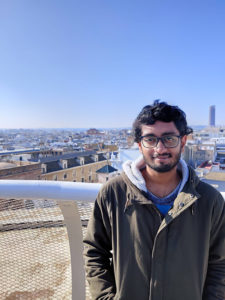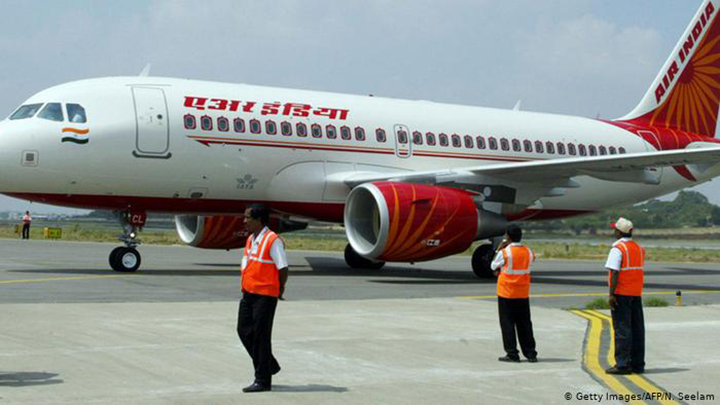Indians in Spain are desperate to get home. On 31 May, the first evacuation flight from Madrid to Delhi will bring some of them home — if they want to spend a wad of cash
There’s a clear case that Spain didn’t get the kind of attention from the Indian authorities like other European countries in the vicinity like Germany, France, Italy, and the UK. They didn’t have the strength of numbers, even though there was a point when this country was second on the list of the most affected nations in the world.
Many stranded Indians, out of desperation, started writing, or rather tweeting, to the PMO (prime minister’s office) and the minister of external affairs (MoEF) Subrahmanyam Jaishankar.
Like Ashima Munjul’s tweet: “Strong appeal from all the Indians stranded here in Spain. Our residency expires, health insurance expires, and now we are almost running out of money to pay the rent and food.” One of the desperate Indians stranded abroad missed Sushma Swaraj, who was “much more prompt because she could empathise,” he said but didn’t want to be named. He will be one of the many Indians on the first flight from Spain to India in months.
Hundreds of Indians have been stuck in the capital Madrid and other towns for more than a couple of months, trying hard to get back. Living there is not an option. Their visas are about to expire or already have, and though they be extended because of the travel restrictions, they will soon run out of money. Many have opted to take the flight, some have even received confirmations, though some formalities and paperwork remain.

One of the people taking the flight is Neeraj Venkataraman Murali, a 23-year- old resident of Greater Noida. He’s is living for the last eight months in El Puerto de Santa Maria in the Andalusia region of Spain, where he works as a junior English teacher.
Neeraj has been waiting to fly back to India ever since the lockdown started on 15 March in Spain. He is an outdoor person, likes hiking along the beach, hanging out with friends in bars and café. It was a good life, and he took time off to travel to countries like France, Holland, Switzerland, Belgium with his friends.
Neeraj was also open to exploring other job options when the pandemic struck and spread like wildfire in Spain. The casualties mounted day by day, everything came to a halt and Neeraj was confined to his room. The first few weeks were difficult “to be stuck alone in a room,” soon he got used to it, as they put it, “the new normal.” Thankfully, he has some Indian flatmates to give him company.
To get back to India, he’ll be boarding the special evacuation flight, but it will take him another fortnight before he is reunited with his family and it will cost him Rs 1,00,000. The flight ticket alone is Rs 51,000, and he has opted to quarantine in a hotel in East Delhi for two weeks, which will cost him more than Rs 2,000 a day, plus food and other expenses. He is likely to meet his folks only after 15 June.
A host of hotel options are available for the two-week quarantine on arrival in India that may cost from anywhere between Rs 1,500 to Rs 10,000 a day.
Neeraj reasons that if he stays back, it will cost him around the same money, and when commercial flights resume operations, whenever they do, there will be a mad rush and the ticket prices will be very high, like they are right now. Given the current dismal economic situation due to the pandemic, finding a job in Spain is also next to impossible.
The rate of unemployment in Spain has nearly doubled in the last few months, from 12% to 22%. So the best course of action is to come back home even if it means being unemployed. Not a very different approach to that taken by migrant labourers in India.
Sahil Sachdeva, 22, also an English teacher in a small town close to Valencia nestled on the eastern coast of Spain. He has had an eventful stay, travelled all over Europe on a shoestring budget and enjoyed his time here with his students and colleagues, making new friends. He’s homesick but is not particularly desperate to get back home. Like Neeraj, his plans to find a job have been dashed due to the pandemic, but he has decided against taking the special evacuation flight to New Delhi.

A graduate from Guru Gobind Singh Indraprastha University, Sahil reasons that the condition in Spain is bad, but now numbers in India are rising faster, and there’s hardly anything to choose between the two places from the standpoint of the pandemic. Sahil also points out that the restrictions are progressively being lifted as the worst here has passed; out of the total of 2,78,803 known cases of Covid-19 as of Tuesday morning, 1,97,000 have recovered and about 28,000 have died. There are now only 54,000 active cases, which is less than those in India–some 61,000 active cases and on the rise.
He’s apprehensive that there’d be many infected people in the crowded evacuation flight. “I’m afraid that I will catch the virus during the two weeks of quarantine in Delhi,” he says. He’s hopeful that the commercial flights will resume operations from mid-June, and so he will wait here for some time.
Sahil is happy that people are allowed to go out, he loves that the beach is visible from his window. Some bars and restaurants will also operate at 30% capacity ensuring adequate social distancing. “People are allowed to go out from 6 am to 1 pm and then 8 pm to 11 pm,” Sahil informs.
One thing is clear in all the confusion–one has to pay to get back home, even if you are broke. There are no free lunches and the government is not going to foot your travel bill. Welcome home!
(Cover Image: Special flights beginning from 31 May will be run to bring home Indians stranded in Spain / / Photo: Getty)





